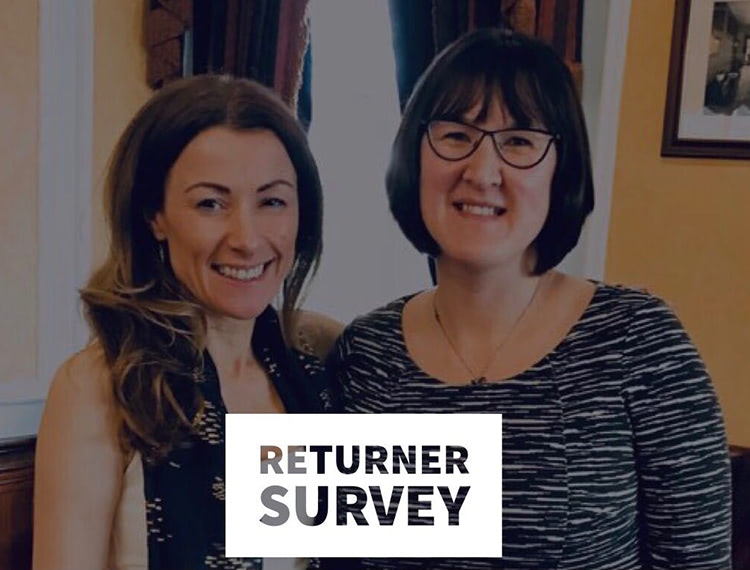Helping businesses retain returning mums

New research by businesswomen Susanna Lawson and Jane Knight aims to help employers gain a better understanding of how to support women returning to work after maternity leave and retain key female talent in their organisation.
Susanna, co-founder of software company OneFile, and Jane, founder of training organisation Successful Mums, have joined forces to investigate the practical steps businesses can take to support “women returners” and to assess the impact of these measures on staff retention.
Research cited in the Government’s recent Guidelines on Returner Programmes shows that 1.9 million women in the UK are economically inactive for caring reasons and that while three-quarters of those surveyed by Opportunity Now want to return to work at some point, “significant personal and structural barriers stand in their way”.
As working parents themselves, both Jane and Susanna are passionate about helping women overcome the challenges they face returning to work after having children. The approach businesses take to these employees is a big part of that picture, explains Jane, and can have a huge impact on women’s ability to return to jobs commensurate with their skills and experience, to retain and develop their skillset and to progress their careers.
“Susanna and I are both ‘women returners’,” she says. “We have first-hand experience of the challenges parents face when they go back to work after a career break and feel driven to help support these women and ensure they are able to participate in the workforce as fully as they wish.
“But we are also both employers – and have a lot of contact with other employers around the country – so we know that this issue has wider ramifications for businesses.
“In a nutshell, when working mothers do not receive the support they need, their employers risk losing these valuable members of staff, their skills and their potential. This can lead to a skills shortage, as a vast pool of untapped female talent goes to waste, and reinforces the gender pay gap.”
Though many organisations have reported this skills shortage as a concern, it is something that is being felt across a broad range of levels in every sector. Indeed, recent estimates by PwC suggest it is costing the UK a staggering £1.7bn per year in lost economic output.
With the stakes so high, it’s no wonder employers are looking for new ways to retain and develop the working mothers on their staff and keep their skills and experience in-house for longer. According to Jane – whose company offers training to women returners and connects them to flexible employers – businesses need more information about how they can ease the transition back to work for women after maternity leave.
This is where Jane and Susanna’s research fits in. Their survey of working mothers who returned to their existing employer after maternity or adoption leave focuses on the support they received on going back to work. Data is being collected on the offer and uptake of initiatives ranging from Keeping In Touch (KIT) days and gradual return to work, to flexible working patterns and refresher training – and, significantly, how helpful women deemed these initiatives to be.
As well as asking women to identify the most effective things their employer did or could have done to support their return to work, the survey also covers women’s job satisfaction and engagement pre- and post-career break.
Jane and Susanna are hoping that the results will identify which actions have the best possible outcomes for both women’s experiences of returning to work and employers’ ability to retain returning staff.
“Our aim is to pinpoint any training needs that exist among employers that will help them make a real and lasting difference in this area. There’s a chance here for businesses to take practical steps to not only retain and develop their women returners but also, going forward, to attract key talent in the market,” says Jane.
“We’ll be looking at whether education is needed around cultural change or redesigning jobs, for example, and hope to be able to design and deliver this training in the future.
“The simple fact is that helping businesses retain their ‘women returners’ is not only good for the women, it’s good for business, it’s good for diversity and inclusivity in the workplace and it’s good for the economy as a whole.”
Jane and Susanna will be reporting on their preliminary findings at the Celebration of Women in Apprenticeships Conference on 19 July in Coventry, which will highlight the achievements of women in the sector and the opportunities it can offer working parents.











Responses